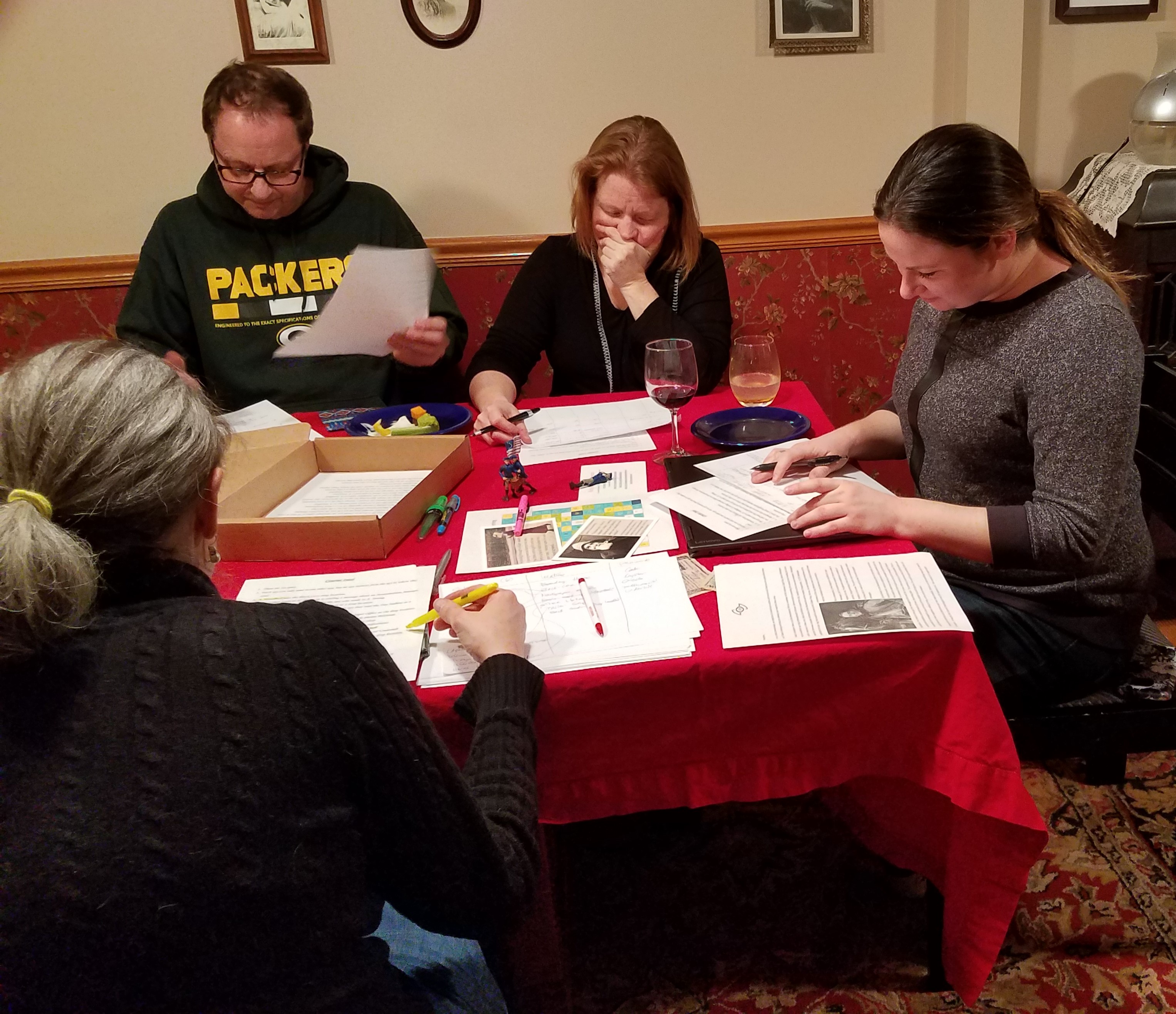
For those of us that love puzzles and ciphers and all things mysterious, there is no better feeling that working your way through a challenging puzzle to emerge victorious with a solution. Of course there are different levels of passion about the activity and different styles of puzzle solvers. Just like online gaming and board gamers, the spectrum can go anywhere from “sure, that sounds like fun on occasion” to “I will do ALL the puzzles – take my money now!” types. Although there is nothing wrong with doing the experience solo, it can be fun to make it a team effort.
Whether it be in an escape room or a subscription mystery box, the puzzle games that are designed to be played in teams work best if you have a diverse team that brings lots of different skill sets to the activity at hand. So the question remains – who do you want on your puzzling team?
The Casual Puzzler
This is the most common type of puzzler. They are interested in puzzles and love a good challenge, but are not obsessed with all things puzzle. They won’t immediately cave and go to the hints at the first sign of difficulty, but they have no problem getting hints or help when the group grinds to a halt. They like the social aspects of puzzle games and want to have a fun, relaxing time with their fellow puzzlers. Somewhat competitive, they get a thrill from solving the puzzles, but enjoy the whole experience. This is the person who says “But you guys, we got really close and it was a lot of fun!” way too enthusiastically when you don’t make it out of the lock room in time. This person is great to have to provide balance and run interference between the rabid puzzlers and the disinterested ones. They are also usually the ones that make the snacks, which is vital for the at home mystery experience.
The Dogged Puzzler
This is the puzzler that is going to solve it no matter what. They don’t need your stinkin’ hints – they will figure it out on their own, through sheer force of will, if necessary. When this type of puzzler gets frustrated, they don’t let their emotions take over and become exasperated or look at hints. They become more and more calm and can appear to not be doing anything at all, but nothing could be further from the truth. Behind their calm demeanor, they are turning over different possibilities at an astonishing rate. Much like Joshua, the secret super computer in the movie War Games, these folks are turning over and rejecting possible cipher types or puzzles faster than you can say, “Hey, pass the chips”. Unlike the computer, though, they never learn the concept of futility, and keep going until they have the answer. This is a great team member to have for getting all the way through an experience, particularly if you have no problem with surreptitiously checking a hint when they aren’t looking and casually nudging them in the right direction (hey, no shame – the hints are there for a reason!).
The Social Puzzler
Let’s be serious, this person is here for the snacks. They were either brought along by a sig other or they didn’t have anything else going because the regular group they hang out with decided to puzzle tonight. They will start random conversations in the middle of puzzling that have nothing to do with the task at hand in an attempt to uncover other social puzzlers or distract a casual puzzler into the much less stressful task of small talk. They will annoy the more avid puzzlers, but they are great to have around after the puzzling is done to liven up the party. I mean, realistically, they are going to be spending half the puzzling time sneaking off to the snack table or to check out what’s in the fridge so they won’t be bugging you anyway.
The One Trick Puzzler
This puzzler has a favorite kind of puzzle or cipher and they don’t care who knows it. They live for the game in which their puzzle of choice appears and are often somewhat disdainful of other puzzle types. They will often comment on why their preferred puzzle is better than all the others. This almost always has to do with a superior skill that they possess. If the puzzle is “the hardest” kind of puzzle and they are the expert on it, it points to their superior intellect. If the puzzle has to do with shapes or patterns, they excel at them because they are “spatially oriented”. This type of puzzler will participate in solving other types of ciphers and such, but will do so with much less enthusiasm. They will sometimes join the social puzzler at the food table during particularly distasteful puzzle types. They are great to have around when you are doing THAT puzzle.
The Mystery Lover Puzzler
This puzzler is akin to a conspiracy theorist, except they are using their powers for good rather than evil. They are convinced there is more to the story out there and that with just a little more research, they will crack open a mystery no one else in the group even sees coming. They never met a rabbit hole they didn’t like and even upon solving a puzzle they remain convinced that there is more to do and other puzzles within puzzles. If they crack a Templar Cipher, they will immediately launch into research on the Illuminati so they can figure out the connection. This is the kind of person that was playing albums backwards in the 70s to hear the hidden Satanic messages. They are convinced that the solution is a well done ruse that actually contains the clues to unlock the rest of the game. Once a mystery is complete and everyone is basking in the afterglow of a job well done, they can be heard muttering something about “email the company because there must be something we missed”. These are great people to have on the team when you want to learn lots and lots about whatever the story is about but you don’t want to bother with the research yourself.
So did you find yourself amongst the puzzler types? Did you find anyone you know?

